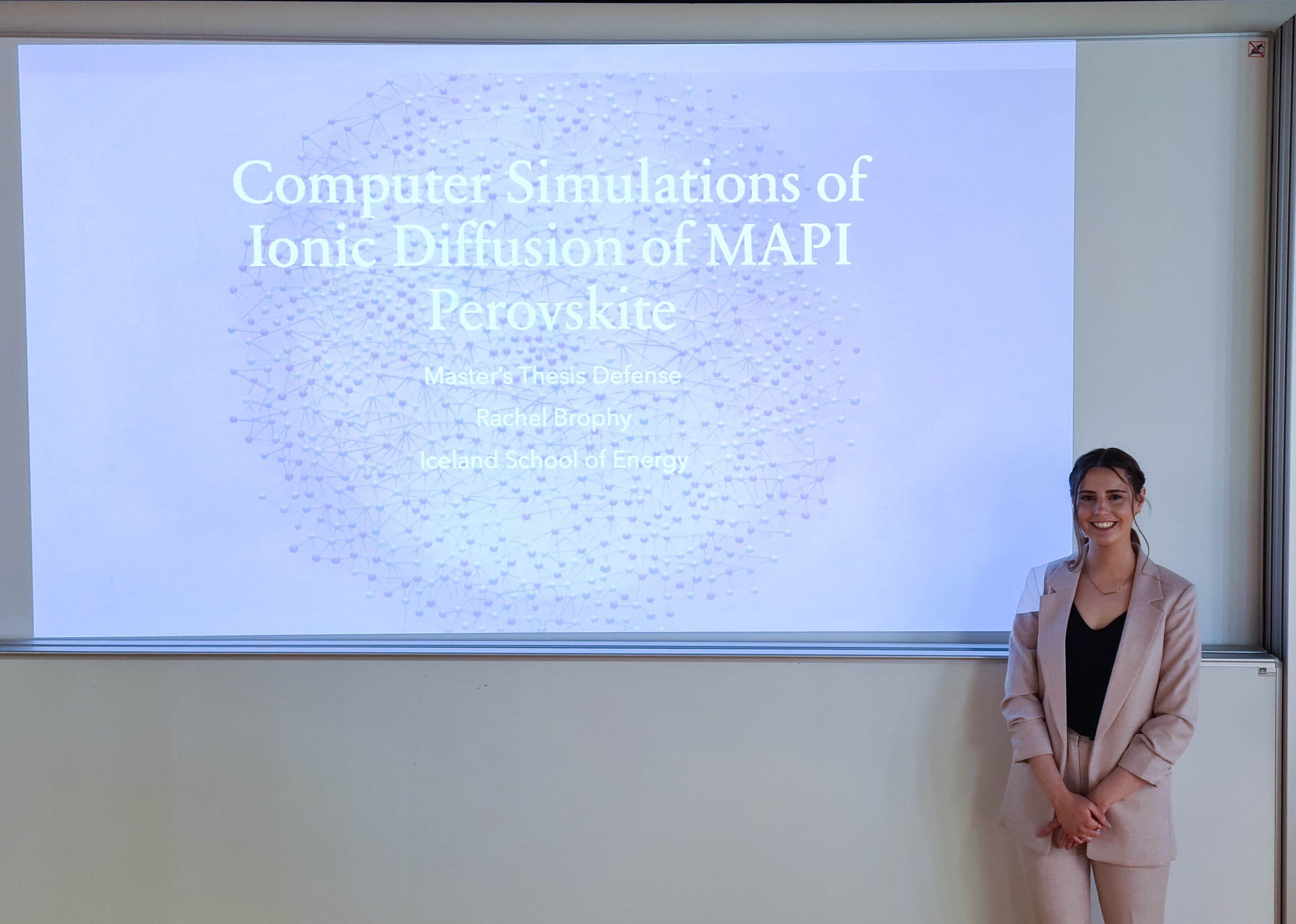MSc Thesis: Computer Simulations of Ionic Diffusion in MAPI Perovskite
REYKJAVIK, May 25 - MSc in Sustainable Energy candidate, Rachel Brophy, successfully defended her master's thesis where she researched the topic of Computer Simulations of Ionic Diffusion in MAPI Perovskite. Rachel's work was supervised by Dr. Andrei Manolescu from Reykjavik University and Dr. Halldór Guðfinnur Svavarsson from Reykjavik University.

Rachel began by highlighting that a new form of solar cells based on hybrid organic-inorganic perovskite materials started to become a major topic the field of photovoltaics starting in 2013. Of these, the most common material is the CH3NH3PbI3, known as MAPI. This type of solar cells material has increased the photoconversion efficiency from 12% to 21% in only seven years, making it one of the fastest-growing efficiency of all solar cells.
However, under working conditions, the MAPI material tends to break down over time much faster than others. The degradation is caused by several effects, such as temperature and ionic migration. Rachel performed a number of simulations of the motion of negative iodine ions (or iodides) inside MAPI, using the LAMMPS software with MYP potential.
In her presentation, Rachel provided an overview of the MAPI material for solar cells, of the molecular dynamics method applied to this material, and some results of the present research. The overarching goal of her research is to identify possible migration patterns of the ions through the defects within the system.
The defects refer to an under-coordinated Pb atom (or vacancy) in the structure and grain boundaries. The motion of the ion or of the vacancy was observed, and the mean squared displacement (MSD) was analyzed.
An iodide was added or eliminated to and from the structure, respectively. Vacancies were also created by displacing one or more iodides away from their original sites, and two recombination processes were identified: a direct recombination between a displaced iodide and a vacancy, and a chain reaction, when the free iodide binds to a complete cell and pushes another iodide nearby into the vacancy. Then, a granular configuration of MAPI was considered, and the migration of the iodide along the grain boundary was observed.
Congratulations Rachel for an excellent thesis defense!
